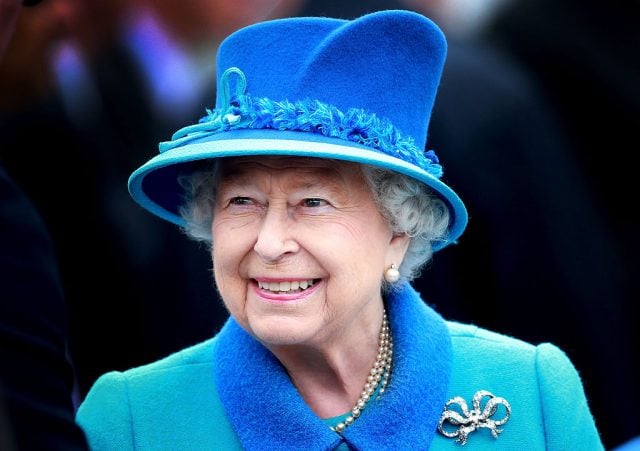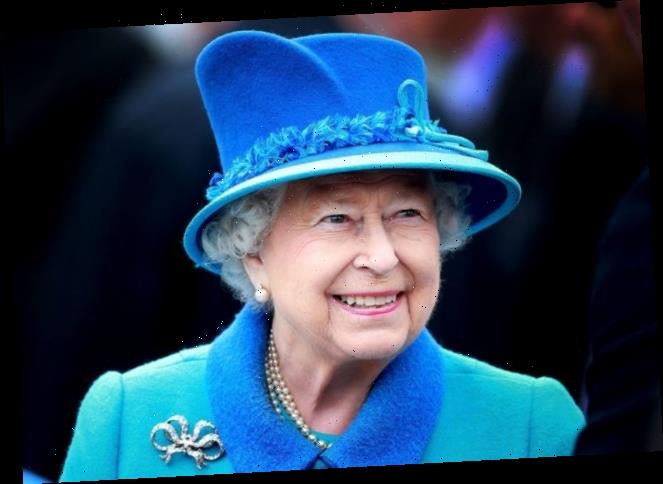Queen Elizabeth has been sitting on the throne for an astonishing 68 years, inheriting the crown after her father, King George VI’s, death in 1952. Her Majesty gained a slew of titles upon her ascension to the throne, though there are some questions about what happened to the titles she had before becoming Queen. Here’s a look at all of Queen Elizabeth’s titles and whether or not she is still the Duchess of Edinburgh.

A look at Queen Elizabeth’s titles
Before she inherited the crown, Queen Elizabeth was known asPrincess Elizabeth and was third in line to the throne (following her unclePrince Edward, and her dad). When Edward abdicated, Queen Elizabeth becamefirst in line after her father, King George VI, took the crown.
Queen Elizabeth was granted her first major title when she married Prince Philip in 1947. Her father granted Philip the title of the Duke of Edinburgh on the day of his wedding, which automatically made her the Duchess of Edinburgh.
In 1952, she ascended the throne upon her father’s death, becoming Her Majesty the Queen. She was then given a bunch of different titles, with her official name being: Elizabeth the Second, by the Grace of God, of the United Kingdom of Great Britain and Northern Ireland and of Her other Realms and Territories Queen, Head of the Commonwealth, and Defender of the Faith.
Her name was slightly changed in 1953 so that it better reflectedthe Commonwealth nations.
Is the Queen still the Duchess of Edinburgh?
According to Express,when Queen Elizabeth took the throne, she effectively lost her title as theDuchess of Edinburgh. Philip, however, is still referred to as the Duke ofEdinburgh.
Once Philip has passed, his title is expected to go to Prince Edward, his youngest son. Edward is the pair’s only son who does not have a Dukedom. Prince Charles is the Duke of Cornwall (and the Prince of Wales), while Prince Andrew is the Duke of York.
After his 1999 wedding to Sophie Rhys-Jones, the couple becamethe Earl and Countess of Wessex. This left the door open for Edward to one daytake on his father’s title as the Duke of Edinburgh.
When that happens, his wife will become the Duchess of Edinburgh,Queen Elizabeth’s former title, as it is vacant at the moment.
Have people misused Queen Elizabeth’s title?
Queen Elizabeth has been referred to by many names in the press,but one of her most well-known titles is actually inaccurate.
Her majesty is sometimes referred to as the Queen of England inthe media, but this is not true because England is not a sovereign state. Infact, the last time England was a sovereign state was way back in 1707.
Without England being a sovereign state Queen Elizabeth cannotrule it. Instead, she should be called Queen of the United Kingdom of GreatBritain and Northern Ireland.
When Charles takes the throne, his title will be the King of the United Kingdom of Great Britain and Northern Ireland, though there is still a bit of mystery about what his wife, Camilla Parker Bowles, will be named.
Will Camilla be the next Queen?
There has been plenty of speculation about what Camilla, Duchessof Cornwall, will be called once Charles is on the throne. The subject is a bitambiguous given Camilla and Charles’ history.
Although many fans believe that Camilla might take on the titleof Queen Consort, a spokesperson for Clarence House recently told Expressthat she will be named Princess Consort when Charles is King.
“The intention is for the duchess to be known as princess consortwhen the prince accedes to the throne,” the spokesperson shared.“This was announced at the time of the marriage and there has beenabsolutely no change at all.”
The decision to avoid calling Camilla Queen was made shortly after the death of Charles’ ex-wife, Princess Diana. The royals did not want to spark any outrage by giving Camilla the title that would have gone to Diana.
This is also why Camilla is not called the Princess of Wales, which is another one of Diana’s former titles.
Queen Elizabeth and Prince Charles have not commented on the reports surrounding Camilla’s future title. The Prince of Wales has waited longer than anyone in British history to become King.
Source: Read Full Article
